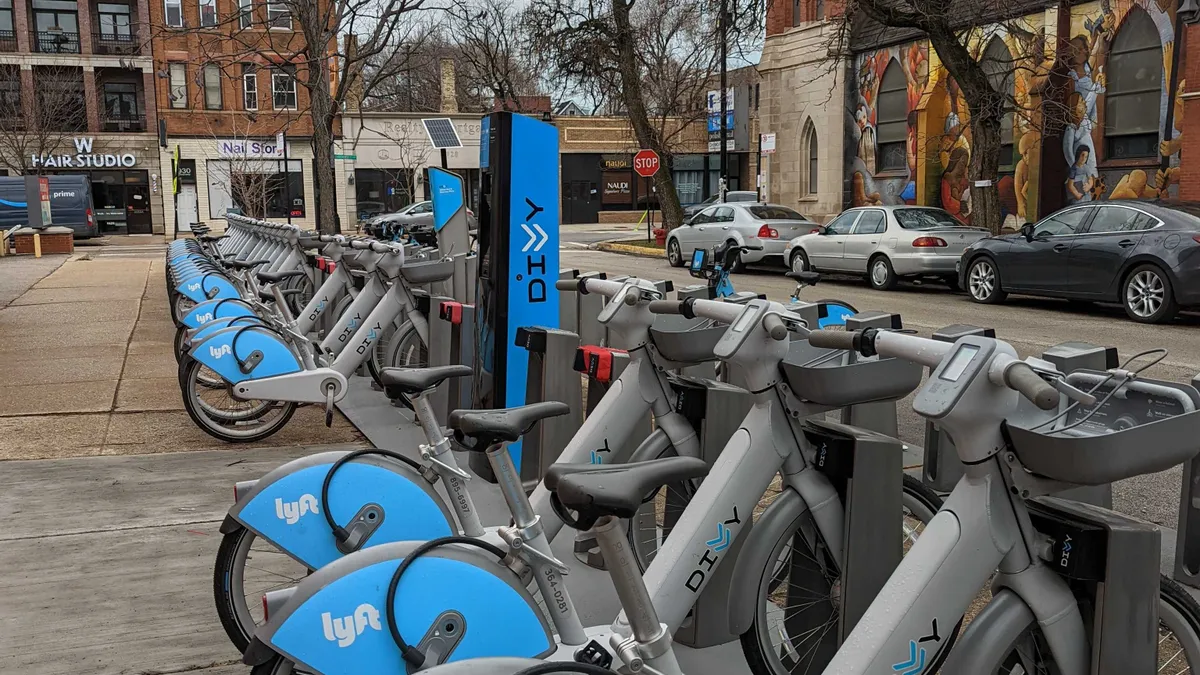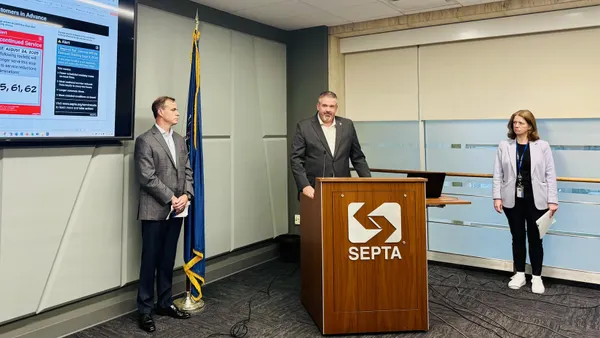MobilityData, a nonprofit aiming to ease travel through shared data and information, will permanently oversee the General Bikeshare Feed Specification, an open standard for micromobility data-sharing, according to a news release Tuesday.
The North American Bikeshare and Scootershare Association collaborated with bike-share system owners and operators, app developers and tech vendors to develop the first version of GBFS, releasing it in 2015. After a competitive search process, the organization partnered with MobilityData in 2019 to advance the standard once NABSA realized it lacked the expertise and resources to ensure GBFS’ success, the news release said.
Now, NABSA is turning over control of GBFS to MobilityData.
“NABSA’s primary role with GBFS was to incubate, initiate, and champion the creation of a standard for micromobility data-sharing to aid the accessibility and effectiveness of shared micromobility as a transportation choice in communities,” NABSA Executive Director Samantha Herr said in the news release. “We can’t think of a better and more capable organization to carry on the mission of GBFS.”
Nearly 9 in 10 cities in North America require micromobility services, including bike- and scooter-share companies, to use GBFS, which provides real-time information about a shared mobility system, according to NABSA.
“This allows, for example, trip-planning applications such as Transit and Google Maps to help travelers plan and locate devices for shared micromobility trips,” the news release said.
App developers had trouble creating tools for travelers before GBFS existed because each shared mobility service had its own data format, according to MobilityData. GBFS aims to make it easier to develop apps by defining how shared mobility companies must structure their data.
“It is an absolutely necessary system that you need to develop [micromobility services] that can operate between jurisdictions,” said Chris Cherry, an engineering professor at the University of Tennessee, Knoxville. “Google was able to put transit systems into their mapping application because there was a standard across all markets.” That would not have been possible if every market had its own data standard, he said.
Open standards such as GBFS also allow third-party organizations to collect and analyze data, Cherry said.
“That helps jurisdictions understand what’s going on in their own city because every city doesn’t have the resources to understand how to dissect the information,” Cherry said.
In addition, open data standards can enable greater transparency and public accountability, micromobility service providers and researchers told Smart Cities Dive.
“Open platforms allow cities and operators to debate what should and shouldn’t be included in data specification,” Brandon Haydu, director of data policy strategy at Lime, said in an email.
Editor’s Note: We have updated this article to include additional comments from Lime and other sources.











